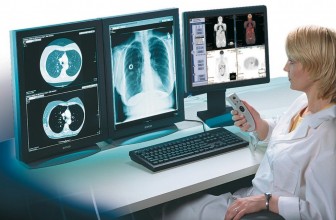
Trauma nurse is trained to work fast and efficiently with a little or no time to spare. This factor makes the career path more stressful, but also rewarding. The nurses admit and treat patients entering emergency units. In addition, they care for all the patients in need of emergency assistance. As a trauma nurse, you can choose to work through an ambulance team aboard paramedics or an emergency unit. You may also work in a hospital setting in the critical or trauma care units.
Contents:
- Different Education Pathways
- The Online Options
- The Licensing Procedure
- Prerequisites for Study
- The Program Accreditation
- The Trauma Nurse Certification
- What Is the Cost of Becoming a Trauma Nurse Practitioner?
- Scholarships for Trauma Nursing
- Working as a Trauma Nurse
- Trauma Nurse Salary
- The Contributing Factors
- The Job Outlook
- Who Can Make a Good Trauma Nurse?
- The Number of Hours Trauma Nurses Work
- Part-Time Trauma Nurses

Different education pathways

There are several career paths that you can follow to become a trauma nurse. The forms of education that you can consider include:
- Diploma
There are some states which recognize three-year hospital diploma training programs for licensing purposes but generally, diplomas are rarely allowed for this nursing field.
- Associate Degree
To complete an associate degree in nursing you will need at least 2 years. There are many universities and colleges within the United States that offer associate degree programs. And even though it isn’t the number one form of nursing degree training, it is the fastest path particularly for the specialized forms of nursing such as trauma nursing. Specialized nursing may require additional training and even certification.
- Undergraduate Degree
Undergraduate degree programs which include Bachelor of Science in nursing are among the popular degrees. They are also properly organized methods of accredited nursing. And the best part is that you can earn an undergraduate degree through a university setting. The Bachelor of Science in nursing takes 4 years to complete and involves courses such as microbiology, anatomy, psychology and some other general nursing classes. After graduating from the program, you must gain at least two additional years of training in a specialized area such as trauma and emergency care before you can start working as a trauma nurse in your state. Moreover, you will need an additional certification outside NCLEX-RN licensure.
- The Graduate Degree
You can complete a Master of Science in nursing degree within 2-3 years after you have completed a Baccalaureate degree. The program mostly includes thesis essay or project that you must complete during the course. To complete the Master’s degree in the nursing field, you can opt for the online or the in-class programs. Both programs include many subjects and at times, they include those connected to trauma nursing in particular.
- Doctorate Degree
The doctorate degree includes both in-class and online learning which can take 1-2 years depending on the intensity of learning and the length of time you spend in class. You can gain it through DNP degree program. You may enter and complete the program immediately after your graduation from master’s degree academic level.
The online options

You cannot completely learn trauma nursing through online settings because of the intensity of practical hands on experience which you must gain. But, however, you may complete some of the theory work involved in master’s or doctorate degree programs online.
The licensing procedure

Just like you expect with the other nurses operating within the United States, you must pass the national licensure examination or the NCLEX-RN to begin working as a trauma nurse. After the licensure, you must work for at least 2 years within the emergency or trauma nursing field. This allows you to gain the experience and confidence you need in the field before you can take an examination for certification in this nursing niche. You must earn Emergency Nursing Certification through Board or Certification for Emergency Nurses or BCEN and a Trauma Nursing Course for you to move forward in a trauma nursing field.
Prerequisites for study
Registered Nurses (RNS) and their fields of specialization require at least a high school diploma and a GPA above 2.0 in order to continue practicing in the nursing field. However, you may require a higher GPA depending on the program you are aiming to complete and the post-secondary institution. Some programs will require a GPA above 3.0.
The program accreditation
The Accreditation Commission for the Education of Nurses (ACEN), the Department of Education and the American Association of Colleges of Nursing (AACN) can help you discover whether your program of choice or school is accredited within the United States or in your state. For a program to be taken as valid for eligibility, it must be accredited.
The trauma nurse certification

After passing the national licensure examination or the NCLEX-RN, you can start the certification process – you can only begin working as a trauma nurse after the certification. After the licensing, a nurse should work for at least two years before writing an examination for certification in their nursing field. You must earn the Emergency Nursing Certification through the Board of Certification for Emergency Nurses or BCEN and a Trauma Nursing Course to move forward in the trauma field. NCLEX examination certification is usually determined through several categories chosen nationally. They include:
- Caring for patients in safer environments
- Preventing sickness and injuries
- Displaying psychological integrity via the ability of changing and adaptation
- Utilizing physiological integrity to develop physical well-being and comfort
What is the cost of becoming a trauma nurse practitioner?
Tuition fees may vary depending on the degree program, the school and the state of the nurses studying the trauma field. You can locate the tuition amount directly through the school of your choice. Moreover, you can gain financial assistance through various avenues such as grants, loans, and scholarship.
Scholarships for trauma nursing
You can apply for the Emergency Nurses Association Foundation Scholarship. The scholarship awards 25 scholarships each and every year to undergraduate and doctoral nursing students. The amounts range from $3000 to $10,000.
Working as a trauma nurse
As a trauma nurse, you will work with various patients in fast-paced and higher stress environments – the patients are admitted in trauma or emergency units. Some trauma nurses may work in perioperative position or critical care units. Others work in ambulances, in emergency rooms, outpatient and mobile emergency care facilities.

Trauma nurses are trained in life-saving techniques and gain skills necessary during emergency situations. Use of defibrillator and some other specialized equipment is crucial in the department. A nurse in this field should have the ability to stabilize a patient and to deal with pressure of faster blood loss, intensive wounds and heart problems. A trauma nurse assesses, diagnoses and cares for the patients who arrive in emergency rooms. They deal with patients who have immediate and acute needs. They face numerous life threatening situations.
Trauma nurse salary
Hospitals highly rely on trauma nurses to care and treat patients in the intensive care units and those in emergency rooms mainly after natural disasters, car accidents, accidental poisoning, and shootings. Therefore, the nurses typically work in faster paces and are usually under more pressure than the other nurses (their patients’ lives are usually at stake). After earning a degree and becoming a trauma nurse, you can earn a salary ranging between $50,000 and $60,000 each and every year.

According to the US Bureau of Labor Statistics, in the year 2013, the annual salary of a trauma nurse was $54,000. The salary varied widely within the western region. The nurses in Hawaii earned the lowest amount which was $35,000 while those in California earned $58,000 as the highest amount within the region. The trauma nurses in the Northeast earned around $46,000 and $65,000 in Maine and New York respectively.
By then, if you worked in Washington or Louisiana you would have earned $64,000 or $46,000 respectively. The two were the highest and the lowest salaries within the South in that year. And in the Midwest, the nurses in Illinois made the highest amount while those in Nebraska and South Dakota earned the lowest amount. Those in Illinois made $59,000 while those in South Dakota and Nebraska made $40,000.

The contributing factors
Trauma nurses may earn higher salaries depending on the employers they are working for, particularly those that pay the registered nurses a higher salary. The salaries of registered nurses were considerably higher in universities and colleges according to data that BLS published in 2012 – the nurse made an average salary of $74,540 annually. The nurses at universities and colleges work at medical centers within the institutions or teach other trauma nurses.
The salary of registered nurses working in surgical and general medical hospitals earned salaries above $69,490 per year. This salary was above the industry average which was $67,930. Trauma nurses may also earn higher starting salaries in universities, colleges or in surgical and general medical hospitals. Moreover, you can earn a higher amount in a larger hospital because such hospitals generate higher revenues that can support their workers’ salaries.
The job outlook
According to BLS, the job market for trauma nurses is projected to grow by approximately 26%. This growth rate is faster than the 14% growth rate expected for all occupations. The technological advancement in equipment will help hospitals serve more patients and this may increase the number of jobs for trauma nurses. Moreover, the increase of aging American population will also create more jobs for the nurses – seniors require hospital services quite often. Outpatient centers offer more job opportunities for trauma nurses.
Who can make a good trauma nurse?
To be a trauma nurse you must have some personality traits. The personality traits that can help you flourish in the career include:
- Quicker thinking
- Multitasking ability
- Good observation, prioritization and assessment skills
- Good customer services and interpersonal skills
- Physical stamina
- Ability to remain calm in the midst of chaos and
- Stronger personal coping skills
The number of hours trauma nurses work

Generally, registered nurses work morning, noon or night rotations/shifts and in most health facilities they are always present. Hospitals and the other health care facilities are always open and they are always in need of nurses to care for patients suffering from injuries and illnesses. The health care facilities also need nurses to care for the elderly people and the others in need of assisted living. Schedule of nurses highly depends on the facilities they work for, the demand for their services, the wages and any other benefits that they discussed with their employers prior to the employment.
Mostly, nurses will work for 5-8 hours on a daily schedule, 4-10 hour days or even 3-12 hour days in a week. And in both cases, employers consider the 36 hour and 40 hour work weeks as full-time work for the registered nurses. The hours do not constitute any voluntary or needed overtime that is common in most health care facilities. In some situations – such as shortages of nurses – trauma nurses may choose or may be required to work overtime due to the demand of their job. The size of the healthcare facility staff and the patient/employers need are some factors that can highly influence the number of hours trauma nurses work in a day.
On the other side, health care centers which include rehabilitation centers, doctor’s offices, universities and colleges may require nurses during the working hours. The working hours in such institutions typically occur during the morning and late evening because there is no staffing in most places. Moreover, a nurse may need to help students at night or during the late evening hours. However, compared with the many health facilities which operate for 24 hours throughout the week, this is an exception.
Without a nurse, patients wouldn’t receive the medical care they require to make a full recovery. Moreover, some patients may die due to lack of attention and medical care. Monitoring the medical machinery and the condition of the patients is important in ensuring quality care. Offering assistance to healthcare specialists such as doctors when patients are suffering from trauma and being present to care for the unpredictable situations are some of trauma nurses’ responsibilities.
The other responsibilities of trauma nurses include recording patient’s symptoms and keeping recovery status records of their patients. The nurses also make assessments of the patient’s medical condition such as injuries and administer medication or specialized treatment. They also help patients within rehabilitation programs. And to ensure that the patients have received adequate medical care, the nurses work alongside medical professionals to provide them with insight and medical information.
Part-time trauma nurses

And in regards to part-time trauma-nurses, the employers decide what is full-time and what is part-time. However, according to Fair Labor Standards Act (FLSA), employees who work for over 40 hours in a week should be paid overtime. Most professions, among them nursing, do consider 30-40 hours per week to be full-time status. Part-time nurses work for 30 hours or even less in a week but earn lower wages and fewer benefits due to their part-time status. In some health facilities, nurses may work for 10-20 hours in a week on fluctuating schedules.
Expectedly, employment of trauma nurses will highly increase in the coming years. Moreover, the job is highly rewarding. Therefore, if you are a quick thinker, you are good in multitasking, you have good observation, prioritization and assessment skills, good customer services and interpersonal skills, you can consider this career. Moreover, to work as a trauma nurse you will need physical stamina ability to remain calm in the midst of chaos and stronger personal coping skills.

































































































































































